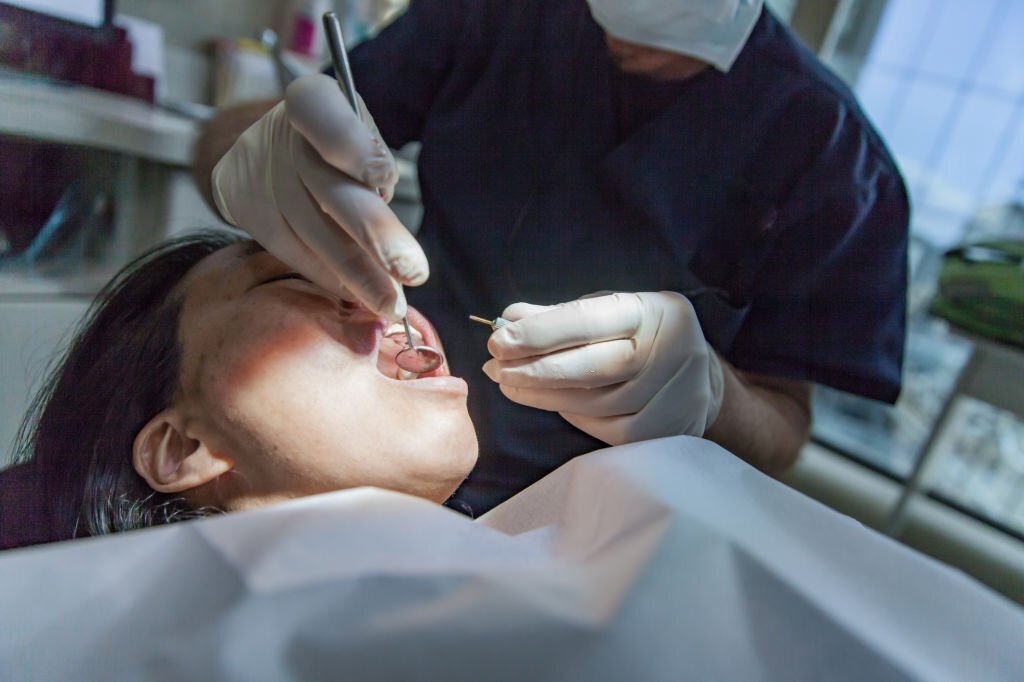Many oral issues can typically be resolved with dental surgery. However, there are many oral operations, from dental surgery to the extraction of damaged teeth.
Most people are terrified of undergoing surgery, and some find the recovery process a hassle. You must cautiously proceed during the healing phase to avoid developing new dental health problems.
After teeth are extracted, extensive medical repairs and follow-up care must be made. If you don’t follow dental advice, the time it takes to recover properly could be significantly increased.
Perfect Tooth Surgery Needn’t Be Complicated
Perfect tooth surgery allows for pain reduction, a lower risk of complications, and a quick recovery. The following six functional post-operative advice will help reduce the discomfort and risk of complications associated with dental cosmetic works.
Patients must understand what to do following tooth extraction in Texas. You can do several actions to increase your comfort level significantly. Additionally, you must abide by these instructions to avoid any issues.
So continue reading as we get an insight into the aftercare of tooth extraction in our blog.
How To Control Discomfort Following Tooth Removal?
After your teeth plastic surgery, you’ll probably experience pain, stiffness, or agony. Additionally typical is some facial edema.
Your doctor will prescribe medicines to you to deal with these symptoms. They might also suggest a variety of over-the-counter drugs.
You should contact your dentist if the discomfort doesn’t go away 2 – 3 days after the extraction. After a few days, if your discomfort suddenly gets worse, you should phone your dentist right away so they can test out an illness.
Continue Eating Healthily
After a tooth is pulled, one must keep one’s wellness and water consumption. However, foods that can damage the extraction site or put too much strain on the teeth must be avoided. Instead, eat food that requires fewer bites whenever possible.
Vitamin C and vitamin A aid in healing after dental and cosmetic surgery. Therefore, eating foods high in these vitamins makes sense. Examples include omelets, boiling potatoes, prepared veggies, and cut-up fish.
Stews and milkshakes may also be appropriate foods to eat after tooth extraction. However, patients should avoid swallowing anything that is too heated or has large pieces that could get stuck in the space left by the missing tooth.
Cold Treatment
Following tooth extraction in Texas, post-surgical inflammation can last up to a week and peaks around day three. The healing process can be hampered by excessive swelling, which will prolong your recovery.
Use a cold compress sporadically on your face’s affected side for 15 minutes to reduce swelling. The ice numbs the area, lessening your pain and slowing blood flow to reduce swelling. Usually, the first two days following teeth surgery are the most effective for cold therapy.
Reduce All Bleeding
Your Taylor dentist will insert a gauze pad immediately after the tooth is extracted in the region where the tooth was. Then, you’ll be instructed to chew it for roughly 20 minutes.
The pressure lessens any bleeding and aids in blood clotting. You could require a few self-dissolving sutures if your extraction requires more work.
Within the next two days, you might still experience some minor bleeding, but it should drastically lessen. Again, avoid touching the clot that has developed where the tooth once was.
Keep Up Good Oral Hygiene
For the first 24 hours following the treatment, your dentist will advise against using mouthwash, spitting, rinsing, or brushing your teeth.
When you start brushing your teeth again, be careful to be gentle near the wound. Every 2 hours and then after meals, you should also softly wash your mouth with an antimicrobial cleanser or warm salt water.
Taking things slowly when it relates to long-term rehabilitation is advisable rather than rushing back to your regular activities. Therefore, after the extraction, get as much sleep as possible. Additionally, elevate your head by lying on pillows.
Make Use Of Otc Medications
After the extraction’s anesthetic wears off, you can experience pain near the surgery site. Even though the discomfort should subside in a few days, you can treat physical discomfort with over-the-counter drugs.
Take drugs as directed by the manufacturer; therefore, do not consume them for longer than three days. Contact your dentist immediately if the discomfort doesn’t disappear because it can indicate an illness or dry socket.
Conclusion
This brings us to the end of our blog on after-extraction tooth care. Besides, now that you’re understood the different aspects of the process, remember good oral health is the best way to ensure the longevity of your teeth.
However, if you ever have to consult professionals, try reaching out to experts at Taylor Dentist, who can assist with different aspects of tooth extraction. They employ the most modern, painless dental equipment and give thorough aftercare instructions to hasten your recovery.
Reach Out To Professionals You Can Trust
Tooth extraction can be an effortless and relieving experience when done by professionals at Taylor Dental & Braces. Our experts have years of experience in bringing you professional care that ensures a pain-free tooth removal every time. So come, and learn more about the process today by calling us at 512-352-5577.


